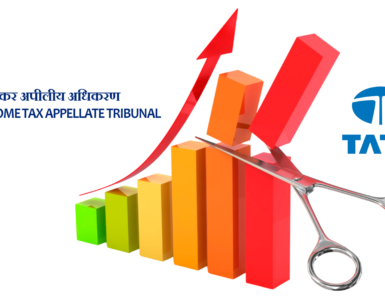Earlier there were two separate regulations, SEBI (Share Based Employee Benefits) Regulations, 2014 and SEBI (Issue of Sweat Equity Regulations), 2002 which provide a framework for issuance of employee share-based benefit scheme and sweat equity shares respectively, applicable to all listed companies.
SEBI (Share Based Employee Benefits) Regulations, 2014 were applicable to the following schemes –
- Employee Stock Option Schemes
- Employee Stock Purchase Schemes
- Stock Appreciation Rights Schemes
- General Employee Benefits Schemes
- Retirement Benefit Schemes.
For the issue of Sweat Equity shares, Securities and Exchange Board of India (Issue of Sweat Equity) Regulations, 2002 were applicable
SEBI approved the merger of above two regulations into single SEBI (Share Based Employee Benefits and Sweat Equity) Regulations, 2021 (“New Regulations”) in the Board Meeting held on 6th August 2021 with some amendments and refinements which is effective from August 13, 2021. New regulations are applicable for every “Listed Company” providing Employee Benefits / Share Incentive Schemes.
We have tried to analyze below the key amendments made by the SEBI based on the report given by the Expert Group constituted to revisit the framework of the above-mentioned regulations. SEBI has given more “clarity” on some points, some points are amended by inserting “new clauses” whereas some points are “newly added” in these regulations.
Key highlights of the changes under SEBI (Share Based Employee Benefits and Sweat Equity) Regulations, 2021
Changes significant for the COMPANIES: –
1. Mode of implementation of scheme –
In the New Regulations, SEBI has given the option to change the mode of implementation of scheme i.e., Direct Route to Indirect Route or vice versa by obtaining fresh approval of members for such change.
2. Composition of Compensation Committee –
SEBI has clarified that the composition of compensation committee shall be in line with Regulation 19 of the Securities and Exchange Board of India (Listing Obligations and Disclosure Requirements) Regulations, 2015.
3. Winding up of the Scheme –
Under the new regulations, with the approval of the shareholders, if the Company is having any other scheme, excess money or shares remaining with the trust upon winding up of the scheme can also be transferred to such another scheme.
4. In-Principal approval of recognized stock exchange –
In these New Regulations, SEBI has clarified that in-principal approval from stock exchange is required to be obtained “prior” to the grant of options.
5. Certificate from “Secretarial Auditor” –
Under the new regulations, SEBI has clarified that at each Annual General Meeting, the Board of Directors of the Company is required to obtain the certificate from the “Secretarial Auditor” that the scheme of share-based employee benefit has been implemented in accordance with regulatory provisions.
Secretarial Auditor being Practicing Company Secretary is deemed to having a good knowledge of regulatory provisions hence SEBI has clarified that the practising Company Secretary shall issue a certificate to the Company.
6. Buy-back of stock-options
To give more clarity on the buy-back of the stock options, new regulations provides that compensation committee is required to include the procedure for buy-back of specified securities including the details such as permissible sources of financing for buy-back, minimum financial threshold to be maintained, limit on quantum of securities that may be buy-back etc. while formulating the detailed terms and conditions.
7. Objective and Quantum of Sweat Equity Shares –
New Regulations clearly specifies when the Company can issue sweat equity shares to its employees and the maximum quantum of shares which can be issued. The same is in line with provisions of the Companies Act, 2013.
As per the New Regulations, Sweat Equity shares can be issued to the employees for providing know-how or making available rights in the nature of intellectual property rights or value additions.
Maximum quantum of sweat equity shares which can be issued in a year is 15 % of the existing paid-up equity capital and issuance of sweat equity shares shall not exceed 25% of the paid-up equity capital of the Company at any point of time.
8. Pricing of Sweat Equity Shares –
As per the New Regulations, pricing of the sweat equity shares shall be similar as to pricing of shares in case of preferential issue of shares given under Chapter V of the SEBI (Issue of Capital and Disclosure Requirement) Regulations, 2018.
CHANGES SIGNIFICANT FOR THE EMPLOYEES: –
1. Definition of Employees for Schemes other than Issue of Sweat Equity Shares –
Considering the current practice followed by the various companies and to allow the Companies to share the benefit with the “Contractual Employees”, SEBI has removed the pre-condition of “Permanent Employee” to be eligible for the Share based employee benefits scheme. As per the new regulations now “Non-Executive Directors” are also eligible for such schemes.
Further, Employees (including directors) of a “Group Company” or “Associate Company” situated in India or outside India are also included in the definition of employee under New Regulations.
2. Definition of Employee for the purpose of issue of Sweat Equity Shares
SEBI has removed the pre-condition of “Permanent Employee” to be eligible for getting Sweat Equity Shares.
3. Vesting of Options in case of Retirement of Employee / Death of Employee –
The new regulations provide that options granted to the employees would “Continue to Vest” even after the retirement or superannuation of the employee.
Further, in case of death of the employee, now all the options granted under the share-based benefit scheme shall vest in the legal heirs or nominees of the deceased employee with effect from the date of death of such employee.
4. Lock-in period for Sweat Equity Shares –
In the new regulations, lock-in period after issuance of sweat equity shares is linked with the lock-in period given under the SEBI (Issue of Capital and Disclosure Requirements) Regulations, 2018.
Now, for the promoters or promoter group Lock-in period shall be 3 years from the date of allotment However, in case where the shares are issued to any person other than the Promoter/ Promoter Group, the shares shall be locked in for a period of 1 year.
In the New Regulations, SEBI has also clarified the following points –
- For Accounting purpose, the grant date will be determined in accordance with applicable Accounting Standards.
- If variation in the scheme is required to meet any regulatory requirement, the same can be done “without” seeking shareholders approval by special resolution.
- If the scheme has been implemented through Trust –
- Limit on the acquisition of shares by Trust through secondary market shall be adjusted in case of expansion or reduction of capital on account of corporate action.
- Trust has been granted additional period of 1 year to appropriate the shares acquired by it if the shares are not backed by the grants.
- Procedure for funding the exercise of options/SAR is given under New Regulations.
Conclusion: –
Employee stock option plans provides an opportunity to reward employees who are recognized performers for the growth of an enterprise, by incentivizing them with an equity stake or a cash payout based on an equity stake. Amendments made by SEBI giving more clarity and giving some relaxation is a welcome move. This will also help the Companies to share the growth with more and more employees and implement the stock option scheme smoothly. Since various start-ups and other companies which are unlisted also provides share-based employee benefits to its employees, Ministry of Corporate Affairs should also think of making amendments in line of this SEBI Regulations.





Add comment